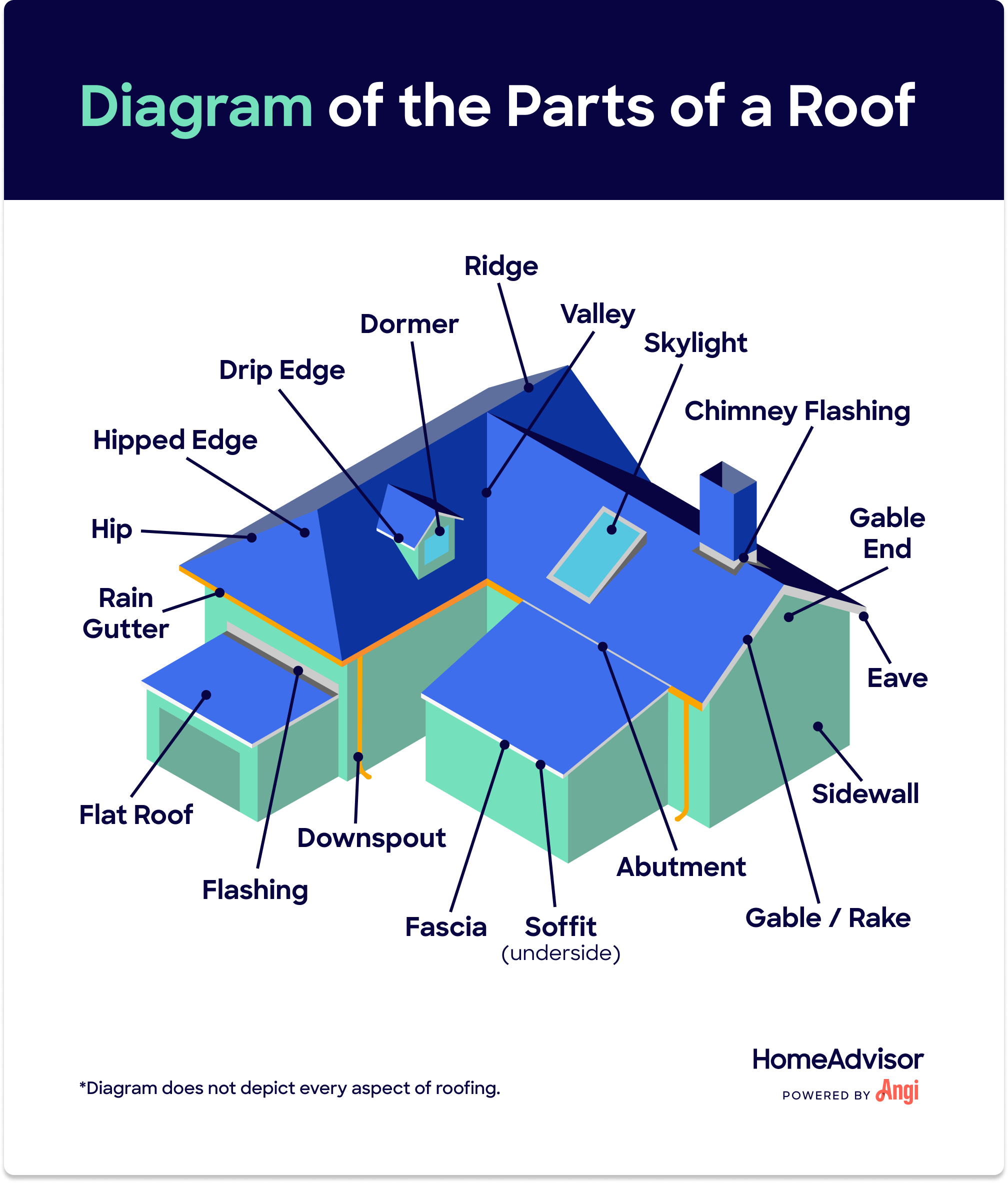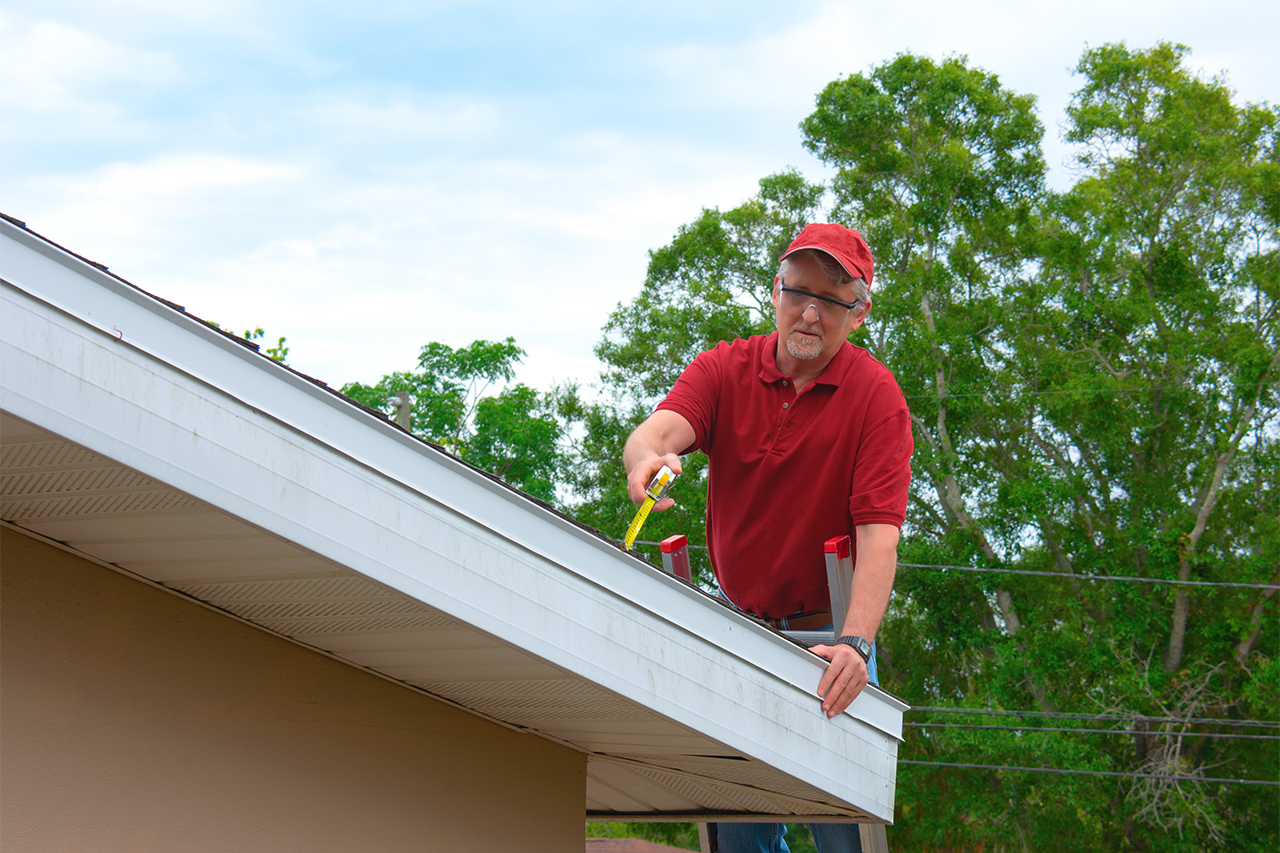How Much Does a Roof Inspection Cost?
Typical Range:
$125 - $362
Typical Range:
$125 - $362
Cost data is based on actual project costs as reported by 2,505 HomeAdvisor members. Embed this data
.
.
.
.
.
.
.
.
.
.
.
.
.
.
.
.
.
.
.
.
.
.
.
.
.
.
.
.
.
.
•
•
•
•
Updated August 16, 2022
Written by HomeAdvisor.A roof inspection is an examination of the roof and roof components to assess their condition. The average roof inspection cost is $239, with most homeowners spending between $125 and $362. The cost varies depending on the tools and methods used to examine your roof. If an inspector uses a drone or infrared technology, prices can go as high as $600.
Roof inspections can give you peace of mind that your roof is functioning properly and is safe. If your roof is damaged, an inspection can help you understand the kind of work needed and how much you should budget for roof repair costs.
Let's calculate cost data for you. Where are you located?
Where are you located?
| National Average | $239 |
| Typical Range | $125 - $362 |
| Low End - High End | $75 - $988 |
Cost data is based on actual project costs as reported by 2,505 HomeAdvisor members.
A roof inspector is trained to visually examine all roof system components to ensure they're performing as intended. They check for any weakness, deterioration, or hazards and list all the necessary repairs to make. When they can't physically reach a specific spot, they may use special equipment such as drones or infrared technology. Typically, a professional roof inspection entails a thorough review of four primary aspects, which we cover below.
This part of a roof inspection checks the structural integrity of your overall roofing system. The process involves looking for signs of roof sagging and uneven roof planes. These signs can include:
Cracked, splintered, or rotted trusses
Sagging ceilings
Tilting or leaning exterior walls
Missing or damaged rafter and collar ties
As part of the structural inspection, the inspector will also check your gutters to ensure they’re draining properly. Moisture and water buildup in your roof and gutters can lead to mold growth, leaks, and—as a result—a shorter roof life span.
This part of the inspection involves assessing the physical material of your roof. For example, the inspector will look for missing, loose, or curling shingles and signs of staining, rust, moss, and water damage. They'll also inspect the flashing for leaks, cracks, or pest infestation.
Some signs of roof damage or wear and tear may not be visible from the outside. The inspector will also examine your roof from the inside, focusing on the attic, ceilings, and interior walls. They'll check for things such as proper attic ventilation, the condition of roof vents, and signs of damage like:
Leaks around vents and chimneys
Holes in the walls or ceilings
Wood rot
Water stains
Mold
Light from outside coming through
Here, the inspector examines your roof for any technical problems or errors that increase the chances of damage to the roof in the future. They may look to see if your roof shingle type is properly secured and laid out, if the flashing around the vent pipes is done correctly, and if the materials used are generally of good quality. A roof inspection can be part of a home inspection if you're purchasing a new home, with a home inspection costing between $280 and $400. But while it may be more cost-effective to have your roof inspected as part of a more extensive home inspection, the inspection won't be as thorough as a dedicated roof inspection.
The average cost of a roof inspection is about $220. However, this price can fluctuate depending on the inspection type. There are usually three types of roof inspections to choose from: physical, drone, and infrared.
| Type of Roof Inspection | Average Cost Range |
|---|---|
| Physical inspection | $75 – $200 |
| Drone inspection | $150 – $400 |
| Infrared inspection | $400 – $600 |
A physical roof inspection ranges between $75 and $200, depending on the roof size and other factors such as the slope and accessibility. This is the simplest type of roof inspection and involves a certified roofing pro going up a ladder and examining the roof materials and condition in person.
You can request a drone inspection if your roof is too steep or generally difficult to access. The average drone roof inspection cost is between $150 and $400, and the drone will fly around the roof exterior and record close-up footage of all surface regions for the expert to assess.
An infrared roof inspection costs between $400 and $600, making it the most expensive inspection option. Infrared technology allows inspectors to identify signs of damage that would otherwise be invisible to the naked eye, including small cracks and leaks. Typically, it involves a drone that captures thermal imagery of the surface.
Like a drone inspection, this alternative works well for roofs that are difficult to access. An infrared inspection can also identify weaknesses or damage in specific regions of the roof by detecting spots where warmer or cooler air leaks out.
The inspection method is usually the biggest cost factor for a roof inspection. However, prices may also fluctuate based on several other factors, including:
Size: Some inspectors might charge a premium for larger-than-standard roofs. Others might charge you by the roof's square footage.
Roofing material type: Different materials require a different level of expertise to inspect for damage. Inspecting a slate roof costs more than inspecting a roof made of asphalt shingles.
Slope and accessibility: If your roof has a steep slope and is difficult to access, expect to pay more for a physical inspection. Alternatively, you may have to upgrade the assessment to a more expensive option, such as a drone or infrared assessment.
Climate: More humid climates require an emphasis on moisture damage, while areas with frequent storms—like Florida and Kansas—need inspections for blow-offs. Getting a roofing inspector experienced with conditions in your specific locale and for your particular type of roof is essential.
Some homeowners mistakenly believe that certification and inspection are synonymous. However, there’s a big distinction between the two.
| Roof Inspection | Roof Certification |
|---|---|
| $120 – $320 | $75 – $200 |
| Uncovers potential problems | Estimates life span |
| Done first or by itself | Comes after inspection |
An inspection usually comes before certification and involves a detailed observation of the roof's current state to uncover potential problems. After your inspection (typically within seven days), the inspector will present you with a full report of their findings. The nature of the information in the report can vary from one inspector to the other, but it often includes:
A summary of what was checked and what was found, including pictures of problems
Recommended repairs, if any
Estimated roof repair costs or roof replacement costs
Any concerns about the roof failing
A certification comes after the inspection and describes the general condition of the surface and materials and then draws a conclusion from it. This conclusion is typically in the form of an estimated life span for the roof. A contractor will certify that the construction and shape will hold up for around two to five years.
Most homeowners get their roof certified for one of three reasons:
To provide proof to a buyer or potential buyer about the roof's life span
As part of the documentation required by some mortgage lenders
For peace of mind that your home is safe
Roofing inspectors can order a roofing certification letter as part of the inspection, which differs from the inspection report. The average roof certification cost is between $75 and $200 and is issued by a local roofing contractor who certifies that they’ve inspected the roof, it’s free of defects, and it’s guaranteed to last for a specific amount of time.
Most commercial roof inspections range between $200 and $500 but can also go as high as $1,000 or more. The higher price is largely because commercial roofs are usually bigger than their residential counterparts. Consequently, many commercial roof contractors near you charge by the square foot instead of by the project.
Expect a price between $0.05 and $0.10 per square foot, meaning a 10,000-square-foot warehouse will range between $500 and $1,000. Commercial projects also come with more regulations, like a check for Occupational Safety and Health Administration (OSHA) guidelines, another reason for the higher price.
Doing your own roof inspection can be less costly but riskier. You could miss something important or injure yourself, which is why roof inspections are best left to the pros. Hiring a roof inspection pro might be costly, but you can ensure they'll do the job correctly and safely.
The first step when hiring a pro is to compile a list of local roofing inspection experts in your area. You can seek referrals from friends, family, and neighbors or conduct an online search. Once you have a list of several inspectors, start looking at reviews and ratings on the inspector's website and independent sites, focusing on the most recent testimonies. This will give you a good idea of the quality of their work.
Once you've read enough reviews, narrow your list to three contractors and ask for quotes. Compare the quotes to discover which ones are within your budget. If a particular contractor piques your interest but is more expensive, you can use a bid from a competitor to bargain for a lower price.
Before you officially hire the contractor, ask them about their licensing and insurance. This is important in case anything goes wrong during the inspection.
The National Roofing Contractors Association (NRCA) recommends self-checking your roof at least twice a year in addition to a once-a-year professional inspection.
Regular inspections can make a big difference in how long your roof lasts. They allow you to detect problems early on before they cause significant damage. A professional inspection, in particular, can help you detect less obvious faults, such as gradual wear and tear or a leak that hasn't yet reached your living space.
No, a roof certification isn't a warranty but an informed opinion by a local roof inspection pro on the roof's life span. Only the manufacturer or the roof installer (when installing the roof) can provide a warranty. There are no guarantees attached to a roof certification, and should the roof last less than the given life span, there'll be no liability from the party who issued the certification.
It takes anywhere from 45 minutes to four hours to inspect a roof. Where in that range you land depends on several factors, including:
Square footage
Ease of accessibility
Roofing materials
Whether the attic is included in the inspection
If your roof is severely damaged due to weather, age, or accidents, it may also take longer to complete the inspection.
Common signs of damage that might indicate you need to get a roof inspection include:
Cracked, curled, or missing shingles
Leaks
Water damage
Rotting wood
Even if you don't see any obvious damage, getting an annual professional inspection is still a good idea. This way, you can detect any problems before they cause significant damage to your home.

